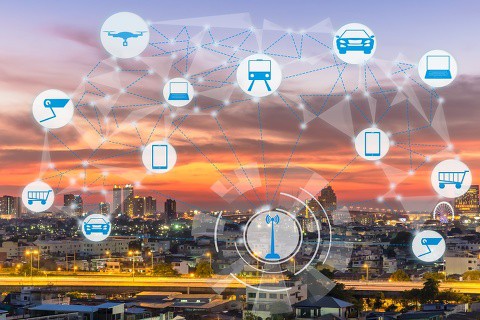Predictions for B2B technology communications in 2020
New opportunities arise from complexity
Our view is that the coming year, and indeed decade, will be one of increasingly complexity – in technology, and the communication of it.
This may sound counter intuitive. The last few years have been marked by simplifying complex issues, and that has worked well for their exponents.
But away from the simplicity of consumer decisions, far more complex technology decisions are being made than ever before.
Tech is becoming more powerful by harnessing more sophisticated maths and science (AI, quantum tech, gene manipulation, etc). Decisions to adopt it need to grapple with a whole range of technical and ethical issues. New approaches to integration and deployment need to be considered, as the fundamentals of how information is stored and processes change.
Your phone may be getting simpler, but the decisions behind the scenes are not.
Those selling to these behind the scenes decisions makers need to demonstrate that complex tech will benefit them, and show them how to adopt it. This is not about making things as simple as possible, as is often claimed in comms. It is about making it as simple as it needs to be for that audience to make an informed decision, but no simpler.
So, with that in mind, here are four predictions for technology communications in 2020.

1. More need for evidence (especially in AI): AI is moving from time-saving consumer apps, to life and death advice. Google has just announced a breakthrough in breast cancer diagnosis. This is risky for a technology that elicits both excitement and scepticism. The narrative needs to shift from ‘AI is this cool new thing’ to ‘This is how AI works in specific situations, these are its limitations, and here is the evidence for when and why you should trust it’.
2. Quantum comes of age: The UK Quantum Technologies Programme moves from Phase 1 – where many concepts were proven, to Phase 2 which has more commercial focus. We already see real-world applications and growing investment, and these will likely hit headlines in 2020. This is a new, complex technology and interest will be amongst early business adopters and forward-thinking investors. Communicators will need to explain to them how it works and integrates, not just deliver simple marketing message around applications.

3. B2B goes customer centric: Netflix and Spotify disrupted consumer industries by making existing services more convenient, targeted and user friendly. Industries from transport to healthcare are undergoing a similar shift as technology puts end-users in control. B2B companies – from medical device manufacturers selling to the NHS, to engineering firms selling transport infrastructure - need to move beyond explaining what they make or install, and start communicating how they help their customers deliver a better end-user experience. This represents a new breed of B2B2C communications.
4. B2B tech companies focus on strategy and deployment: Saying your tech is great no longer cuts it. Buyers need to know not just how it will benefit them, but how it will do so in the context of their already complex IT and business infrastructure. Comms will need to go beyond marketing messages, to provide actionable advice around how customers can deploy and utilise new technology.
For more insights like this, sign up to our newsletter.









